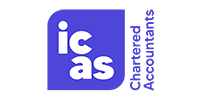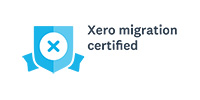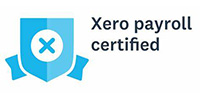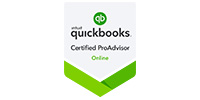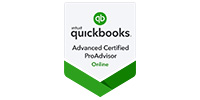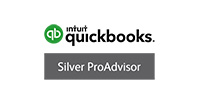Though Brexit marked the end of an era, for businesses involved in importing and exporting, it was only the beginning. Customs rules and procedures for UK-EU trade have changed significantly since 1 January 2021. And they’re still changing.
Being able to deal with import and export declarations is key. This means deciding whether to use a customs intermediary to do the work for you, or grow your own in-house expertise. Any business opting for the non-intermediary route will have to deal with its own declarations, as well as obtaining a range of HMRC authorisations, and specialist software to do so.
HMRC advises that customs declarations can be complicated and that very few businesses deal with their own declarations for this reason. We provide an overview here to help you explore what’s best for you.
Different types of intermediary
There are various different types of intermediary, from logistics companies and couriers to freight forwarders. The services offered vary.
Definitions
Freight forwarders: logistics experts, who move freight internationally by air, road, rail, sea. Many provide other services, including customs clearance and trade documentation. Some employ customs agents, offering a complete end to end service.
Customs agents or brokers: specialists who will help clear goods through customs, taking charge of the documentation, and calculating duties, taxes and other charges.
Fast parcel operators: companies transporting documents, parcels and freight worldwide, within a specific time frame. As part of the service, they can deal with customs for you.
Choosing an intermediary
You will need an intermediary established in Great Britain or Northern Ireland. How do you find one?
HMRC publishes a list of customs agents and fast parcel operators, together with an indication of the services they provide and whether they’re taking on new clients. But being on the list doesn’t constitute HMRC recommendation, and there’s no guarantee that its information is up to date. Please do contact us to discuss your business requirements.
Planning points
Consider the following issues to decide what type of service you are looking for, and help you check that your prospective intermediary can provide it:
Business needs: consider what type of goods you move and how often, where goods need to go, which countries you regularly trade with. Check the intermediary deals with these.
Timing: consider if arrival time is of the essence, and whether you need a service that can react rapidly and/or make changes out of hours.
Volume: consider how many declarations you expect to make in a week or month. We can help you work this out.
Niche requirements: consider if your goods need a licence, special handling, or specialist controls, and whether the intermediary can deal with all this.
The relationship: find out what information the intermediary will require from you, how often they will want it and how you will supply it.
Fees: these can be charged on different bases, such as a fee per declaration, or a fixed fee service.
Potential benefits
The benefits of using an intermediary are considerable. Intermediaries provide expert support of various kinds, with access to the specialist software needed to submit declarations. Your business may be able to take advantage of any access they have to HMRC facilities, such as a duty deferment account (DDA), or HMRC authorisations, instead of having to obtain these yourself. An intermediary may also have access to different customs procedures that can allow you to delay paying import duties in specific circumstances.
Critically, an intermediary will make sure your goods are correctly classified. This responsibility otherwise devolves on your business. Getting it right first time counts: failure to classify goods correctly can mean you’re charged the wrong amount of tax or duty or have to pay penalties. So can inaccuracies in recording the origin of goods.
Using an intermediary can lessen the administrative burden on your business, and make for a smoother import or export journey.
The intermediary relationship
Using an intermediary involves a formal relationship where responsibilities and liability are clearly set out. You need written instructions appointing the intermediary, and you should keep a copy of these.
State in the instructions on what basis the intermediary is acting. There are two options: they can act as a direct representative, or an indirect representative. Responsibilities and liability flow from this, and we are happy to advise you further here. Finally, it’s important to appreciate that even if you do use an intermediary, some responsibilities still lie with your business.
Your responsibilities: overview
- To import or export goods, you need to apply for an Economic Operator Registration and Identification (EORI) number with the prefix GB. An intermediary can’t apply for you.
- To move goods between Northern Ireland and non-EU countries, make a declaration in Northern Ireland or get a customs decision in Northern Ireland, you also need an EORI number with an XI prefix. Again, it falls to the business, not the intermediary, to apply.
- You are generally responsible for paying any taxes or duties owed.
- You are responsible for providing your intermediary with details about your transactions. This includes how often you import and/or export and the type of goods involved, with enough information to enable them to identify the right commodity code. You also need to give details of the quantity of goods; the customs value (that’s the invoice price, with any additional customs charges that need to be included when calculating the customs duty due); and the destination of the goods.
- Accounting for VAT: if VAT registered, you can choose to account for the VAT in your VAT return, though if you use the customs procedure known as entry in declarant’s records, the import VAT must be accounted for in the VAT return.
Other responsibilities vary depending on the exact relationship with your intermediary.
Direct representation: key points
- A direct representative acts in the name of your business, on your behalf.
- Certain responsibilities remain with you, however. You are solely liable for keeping records, the accuracy of any information provided on your customs declarations, any customs duty or import VAT due.
- In some circumstances, a direct representative may become jointly and severally liable. These are where you provide clear instructions and they make a deliberate or unreasonable error.
- You can ask someone to act directly if you hold authorisation and are declaring goods for certain customs special procedures, such as inward processing.
- If you hold authorisation for either simplified declaration procedures or entry in the declarant’s records, you can ask someone to act in your name.
- If you’re established in the UK and import goods into GB (England, Scotland and Wales), you can ask someone to act directly using their own authorisation to make declarations using simplified declaration procedure or entry in the declarant’s records.
- The person representing you directly and making declarations in your name will not be held jointly liable.
- You need to agree with them if you need to have a DDA to make payments to HMRC, or if they will use their own DDA.
Indirect representation: key points
- An indirect representative acts in their own name, but on your behalf.
- They are jointly responsible for declarations, and ensuring that information is correct. They are also jointly and severally liable for any duty or VAT and any duty payable.
- If they have authorisation, you can ask them to make declarations using simplified declaration procedures or entry in the declarant’s records.
- You need to agree with them if you need to have a DDA, or whether they will use their own.
- There are some circumstances in which you can’t ask someone to act indirectly for you: that’s if you are declaring goods for certain customs special procedures, such as inward processing.
Note that if you are not established in the UK, and import goods into GB, you can only ask someone to act indirectly for you.
Northern Ireland
Northern Ireland has a unique position in the post-Brexit world, as you will be aware if you move goods between GB and Northern Ireland, or bring goods into Northern Ireland from outside the UK. The government’s free Trader Support Service (TSS) may be useful to you. It can be used to complete customs and safety and security declarations on your behalf, where required, to move goods between GB and Northern Ireland. But if your needs go beyond what the TSS can offer, you may want an alternative solution, like using an intermediary. Please do contact us for further guidance.
Why this is important now
New regulations around customs procedures and border controls for GB imports from the EU are being gradually phased in to give businesses time to prepare. For some goods, there’s been the ability to delay making full customs declarations, as part of the phased implementation. Since 1 January 2021, businesses have been able to use a temporary simplified procedure, on a rolling 175-day deadline. This has involved entering certain information in their own commercial records, without prior authorisation, and making a supplementary declaration to HMRC up to 175 days later.
But the clock is still running. Declarations are only delayed: they do still need to be made, and some businesses may have a considerable backlog to deal with.
Supplementary declarations: countdown
- Rule Britannia Ltd imported goods from the EU on 1 January 2021. It decided to defer import declarations
- its first supplementary declaration was due by 25 June 2021 at the latest.
Looking to the future, the easement expires on 31 December 2021. For goods imported from 1 January 2022, arrangements will need to be in place to meet the long term requirements. This means either having the authorisations to make simplified declarations, or being ready to make full import declarations.
This is therefore very much a live issue. Getting the right authorisations in place to make submissions can take up to 60 days, so action is needed sooner rather than later. Similarly, if you want to use an intermediary, we advise making arrangements as soon as possible, as their services are in high demand.
Working with you
As the initial easement period ends, businesses need an appreciation of what long term customs compliance involves in order to implement the customs solution that will suit them best. Please don’t hesitate to contact us to discuss your business requirements.


